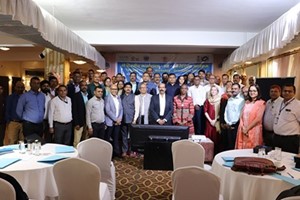During the week of 23-27 June 2025, leaders from across Asia and the Pacific will gather for the Third Ministerial Conference on Civil Registration and Vital Statistics (CRVS), a landmark event hosted by the United Nations Economic and Social Commission for Asia and the Pacific (ESCAP) in close collaboration with 16 co-organizing partners. The conference will mark a key moment in the region’s ongoing commitment to building inclusive, universal, and resilient CRVS systems.
Expected participants include ministers responsible for civil registration, planning, justice, health, statistics, finance, national ID systems, and digitalization, along with technical experts, development partners, and civil society organizations. The breadth of representation reflects the growing recognition that CRVS systems are foundational to good governance, inclusive development, and legal identity for all.
The conference will serve multiple objectives; It will celebrate the achievements of the CRVS Decade, highlighting national and regional progress in registration coverage, legal reform, and digital innovation. Building on the findings of the 2025 progress review to be launched on 16 June, the conference will identify key areas where further work is needed to meet the goals of and targets set out in the Regional Action Framework for CRVS in Asia and the Pacific.
Importantly, the event will also provide the platform for formally extending the CRVS Decade to align with the 2030 Agenda for Sustainable Development. Looking ahead, it aims to build renewed political momentum and commitment for ensuring that CRVS systems will be inclusive, resilient, and people-centered. In total, the conference will host over 20 events, providing a platform for stakeholders to engage in discussions and share best practices in strengthening CRVS systems across the Asia-Pacific region.
For those unable to attend in person, the plenary sessions of the conference will be webcast live, and several associated events and side events will be held in hybrid mode, allowing broader participation and engagement from stakeholders across the region and beyond. The full programme is available online.
As June approaches, the Third Ministerial Conference represents both a moment of reflection and a call to action. It is a chance for the region to reaffirm its shared vision: that every person matters, and every life must be counted and recognized.












